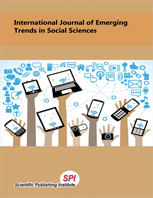Forensic accounting as a panacea to financial crime in Bangladesh: An empirical investigation
DOI:
https://doi.org/10.55217/103.v17i2.828Keywords:
Financial reporting credibility, Financial transparency, Forensic accounting, Fraud reduction, Internal control.Abstract
Forensic accounting has become significant in recent years due to the colossal scale of financial fraud and other financial crimes. It is gaining attention not only from corporate sectors but also from economists, policymakers, financial analysts and many others as embezzlement surges in many sectors. The study looks at different factors of forensic accounting as an effective tool for reducing fraud in Bangladesh. A well-designed questionnaire was used to gather primary data. Following the purposive sampling method, 150 responses were collected. Data were analyzed with the use of tables, and statistical regression tools like Chi-square, correlation, and regression. Besides, model diagnostics revealed that all the regressions are free from autocorrelation, and errors are normally distributed. The study reveals that forensic accounting significantly reduces fraud in firms by strengthening internal controls, increasing financial transparency, and enhancing the trustworthiness of financial reporting. These findings are executed under simple regression analysis as the beta ranges between 0.251 and 0.339 under a 1% significance level. Thus, the study concludes that strong internal control systems, reliable financial reporting, and financial transparency can help to reduce financial crime. Therefore, it is suggested that the government of Bangladesh and regulatory bodies should foster the development of forensic accounting through education, training, awareness programmes, and investigations of alleged financial crime cases. This could result in a more robust forensic accounting framework, ultimately reducing financial crime.


